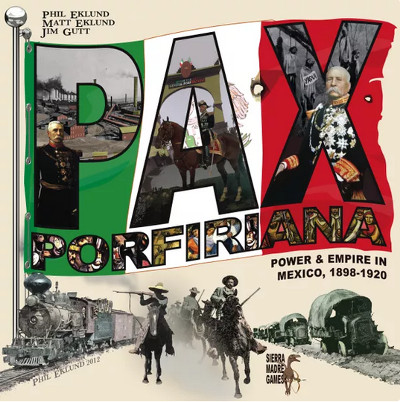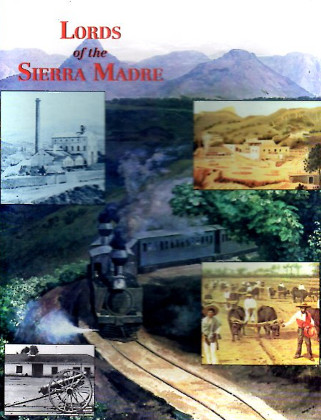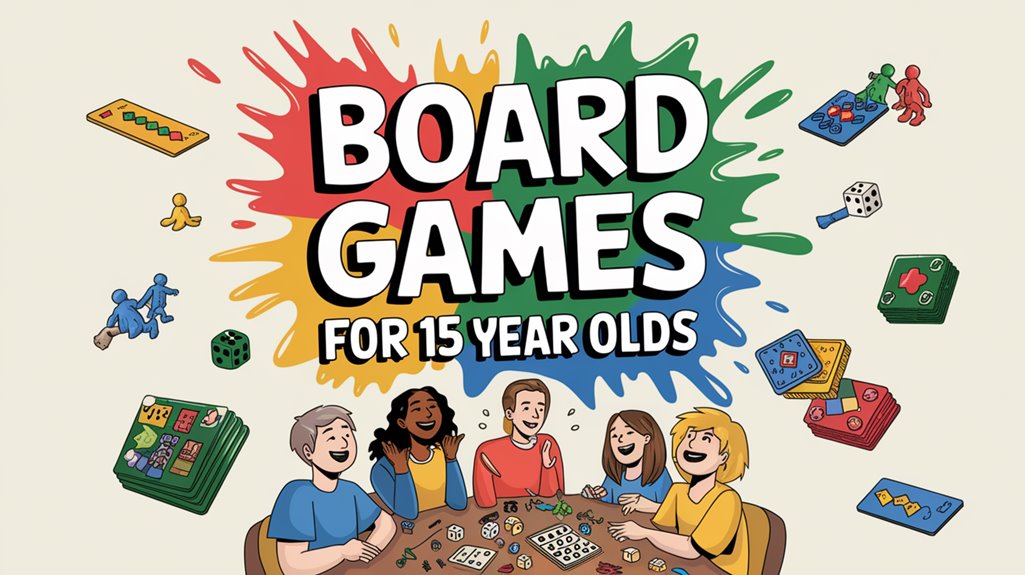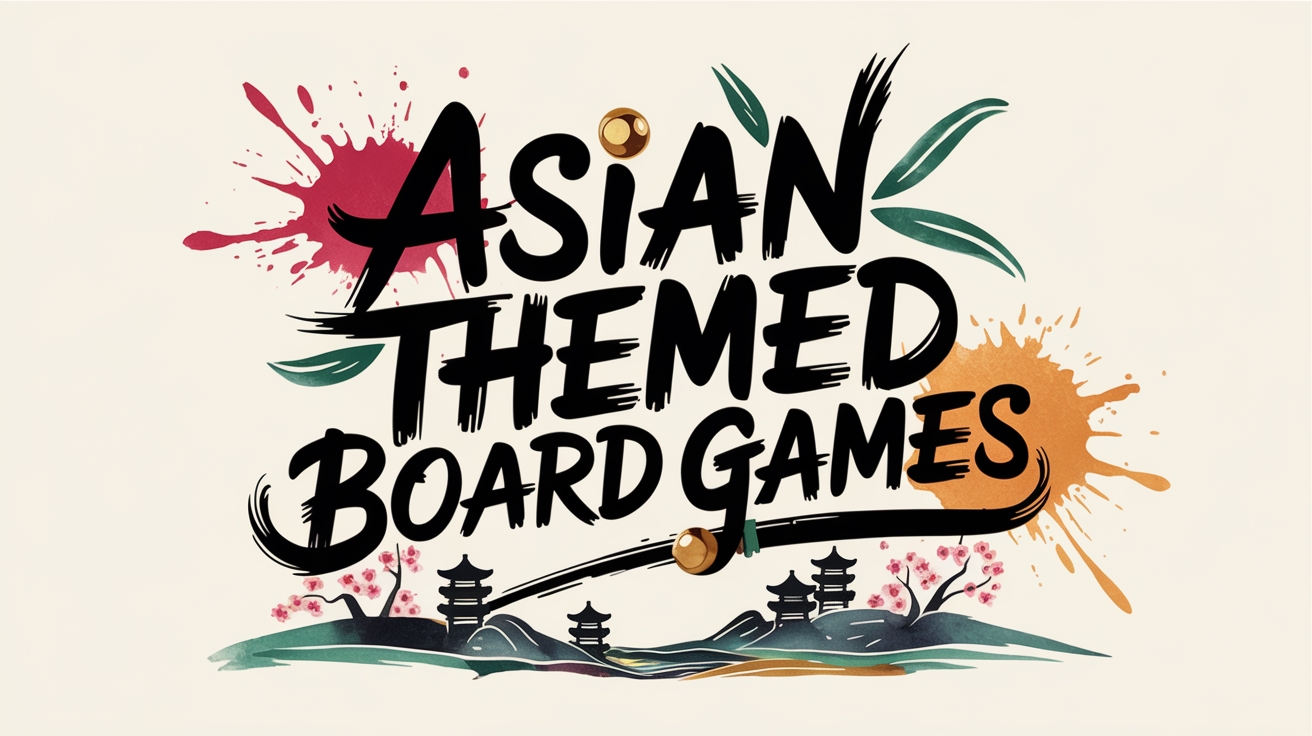Mexican themed board games immerse players in the rich tapestry of Mexico’s history, culture, and conflicts. From the socio-political complexities of the Porfirio Díaz era in “Pax Porfiriana” to strategic battles during the Mexican-American War in “Gringo!”, these games explore various facets of Mexican heritage. Players can navigate revolutionary struggles in “Tierra y Libertad” while engaging with authentic historical scenarios. Each title offers unique mechanics and gameplay experiences that celebrate Mexico’s vibrant past and cultural richness, making them fascinating options for history buffs and board game enthusiasts alike.
Pax Porfiriana (2012)
Pax Porfiriana, released in 2012, immerses players in the socio-political landscape of Mexico during the Porfirio Díaz era. This strategic board game accommodates 1 to 6 players, aged 12 and older, with an estimated playtime of 90 to 120 minutes. Players take on the roles of wealthy hacendados aiming to build their business empires while navigating the tensions of the pre-revolutionary period.
Gameplay consists of several key mechanisms:
- Action Phase: Players execute three strategic moves per turn, which may include acquiring new cards, redeploying troops, or influencing the market.
- Market Dynamics: The game features a dynamic market system where players can discard and restore cards to optimize their strategies and maintain a competitive edge.
- Income Generation: Players earn gold based on their business connections and the assets they have in play, which is essential for expanding their influence.
- Government Fluctuations: The shifting form of government affects production values and victory conditions, compelling players to consider political strategies to topple Díaz.
- Card Variety: With a total of 220 unique cards, each session presents different challenges and opportunities, enhancing replayability.
Victory can be achieved either by overthrowing Díaz or by accumulating the most wealth if his regime remains intact. Pax Porfiriana offers a deep exploration of ambition and revolution within a richly detailed historical context.
Lords of the Sierra Madre (1995)
Set in northern Mexico during 1898, Lords of the Sierra Madre (Second Edition) is an engaging strategy game designed for 2-8 players aged 14 and up, with an average playtime of 2 to 4 hours. Players take on the roles of hacendados, aiming to build expansive business empires through railroads, mines, and ranches within a volatile economic landscape.
The game features a rich array of mechanics, including a unique card-driven system that influences gameplay dynamics. Players will employ strategies involving banditos for protection or sabotage, negotiate alliances, and may even manipulate political power by vying for governorships or the presidency. This intricate interplay of resource management and strategic planning means that players must continuously adapt to changing circumstances and the actions of their opponents.
Combat, while an option, can be expensive and may lead to detrimental consequences, making negotiation and cooperation often more fruitful paths to victory. Lords of the Sierra Madre fosters an environment where cunning and adaptability are essential, challenging players to navigate ambition and opportunity in their quest for dominance.
Gringo!: The Mexican War 1846-48 (2004)
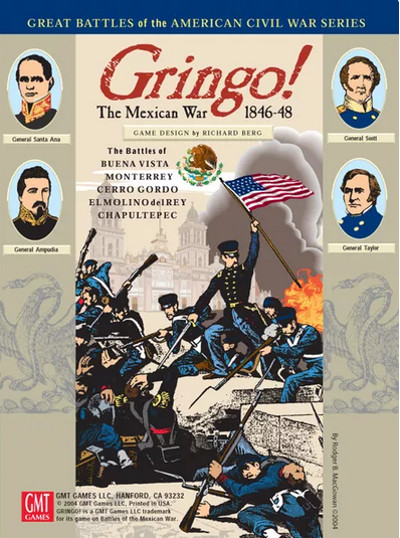
“Gringo!: The Mexican War 1846-1848” is a wargame designed for 1 to 6 players, with an average playtime of approximately 180 minutes. It is suitable for ages 12 and up, providing a focused examination of key military engagements during the Mexican-American War.
Players engage in five pivotal battles, including Buena Vista and Cerro Gordo, each presenting specific tactical challenges. The game utilizes simplified rules (GBACW v4.3) to ensure accessibility while preserving strategic depth. It features extensive guidelines for street fighting and square formations, enhancing tactical gameplay.
The game includes two large maps and multiple counter sheets, allowing for dynamic strategic maneuvers. Players can take on the roles of historical figures such as General Zachary Taylor and Generalissimo Antonio de Santa Anna, immersing themselves in vibrant character interactions. “Gringo!” not only entertains but also serves as an educational tool about a significant period in North American history.
18MEX (2005)
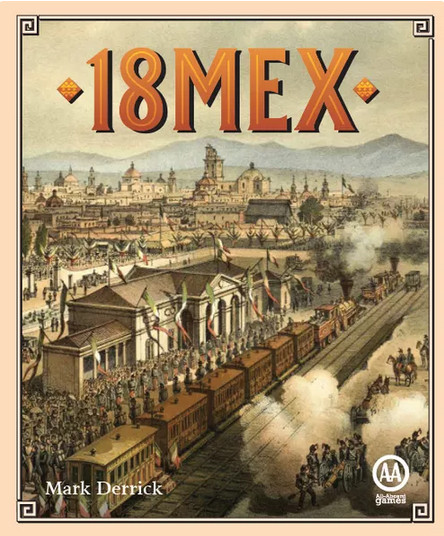
“MEX” (2005) offers a distinct experience in railroad-themed board games by immersing players in the vibrant landscape of Mexico and its historical railroad operations. Designed for 3-5 players, the game typically spans 3-4 hours, catering to those who appreciate deep strategy and competitive play.
Following the 18xx system, players strive to control railroads and enhance their net worth. The gameplay features unique components, including private companies, minor railroads, and the government railroad known as NdM (Nacional de México). These elements introduce intricate layers of strategy, requiring players to make calculated decisions regarding investments, route building, and resource allocation.
While the extended playtime may deter some in favor of faster games, “MEX” rewards meticulous planning and resource management. The game’s complexity and financial focus will appeal to enthusiasts of strategic, in-depth gameplay, solidifying its standing in the realm of Mexican-themed board games. “MEX” stands out as an engaging exploration of historical railroad enterprises, inviting players to navigate its multifaceted world.
Cactus Throne: The Mexican War of 1862-1867 (2005)
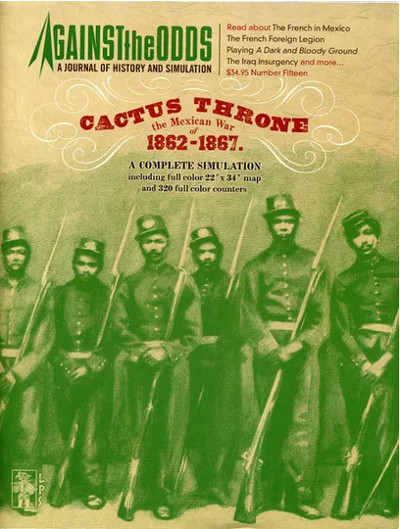
Cactus Throne: The Mexican War of 1862-1867 (2005) is a two-player strategy game that delves into a significant chapter of Mexican history. Players engage in an intense competition, taking on the roles of Imperial forces led by the French-supported Maximilian and Republican troops loyal to Benito Juárez. The game is designed for ages 14 and up and offers an extensive playtime of approximately 360 minutes.
Key features of the game include:
- Two-player competition: Directly challenge your opponent in a strategic face-off for control.
- Historical context: Explore the events and dynamics of the Mexican War of 1862-1867.
- Diverse military units: Command various factions, including the French Foreign Legion and local Mexican forces, each with unique abilities and roles.
- Strategic depth: Employ tactical maneuvers and resource management to outwit your opponent, utilizing a mix of offensive and defensive strategies.
- Rich thematic elements: Experience the cultural and political complexities of 19th-century Mexico through gameplay.
Whether you align with the aspirations of Napoleon III or the quest for Mexican independence, Cactus Throne offers a rich experience for history buffs and strategy game enthusiasts alike.
Tierra y Libertad, el juego revolucionario (2009)
Tierra y Libertad is designed for 1-5 players aged 12 and up, offering a playtime of approximately 50 minutes. Players collaborate to defeat the conservative government by accumulating 150 victory points. However, individual ambition is key, as the player with the highest score at the end becomes “the Greatest Revolutionary of Mexico.”
The game features cooperative mechanics where players must strategically utilize their resources and revolutionary tactics to advance their cause. Players can choose different revolutionary leaders, each with unique abilities that influence gameplay. As they navigate through various challenges, they must balance teamwork with personal goals to maximize their victory points.
This engaging game not only entertains but also immerses players in the historical significance of the Mexican Revolution, making it an excellent choice for history enthusiasts eager to explore revolutionary strategies.
The Halls of Montezuma (2009)
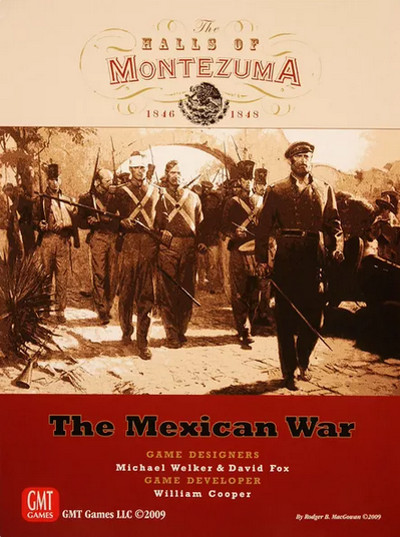
The Halls of Montezuma is a card-driven game set during the Mexican-American War (1846-1848), designed for two players aged 11 and older. The game typically plays in about 90 minutes and immerses participants in the strategic and tactical decisions reflective of the era’s military conflicts.
Players utilize a deck of 110 Strategy & Action cards to influence the course of the war, with each card offering unique actions and opportunities. The gameplay emphasizes tactical planning, allowing players to execute maneuvers, engage in battles, and manage resources to gain advantages. The 22×34 mapsheet serves as the battlefield, where players position their forces and navigate various terrains, while player aid cards provide quick reference to rules and mechanisms.
Key components include two sheets of counters, totaling 352, which represent various units and leaders from the conflict, including notable figures like Doniphan, Arista, and Santa Anna. Designed by Michael Welker and David Fox, with artwork by Rodger B. MacGowan and Tim Schlief, The Halls of Montezuma not only offers an engaging strategy experience but also serves as an educational tool, bringing a pivotal historical event to life through strategic gameplay.
Battles with the Gringos, Mexico 1846-62 (2008)
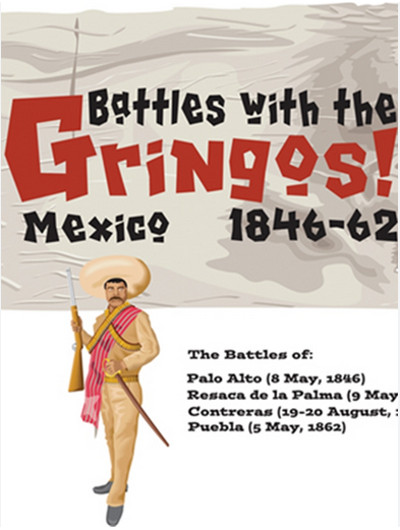
Set during the Mexican-American War, Battles with the Gringos, Mexico 1846-62 immerses two players in four half-map battles, each taking approximately 180 minutes to complete. Designed for ages 12 and up, the game emphasizes strategic depth and historical accuracy.
The scenarios featured are Palo Alto, where players confront terrain challenges and innovative military strategies; Resaca de la Palma, which involves hidden troop deployments against a numerically superior Mexican defense; Contreras, focusing on the importance of scouting and tactical choices; and Puebla, the site of the notable Cinco de Mayo battle, emphasizing the fierce conflict between French and Mexican armies.
Each battle offers unique terrains and tactical dilemmas, enhancing the competitive nature of the game while firmly rooting it in historical events. Players can also opt for solitaire play, increasing the game’s flexibility. The game includes two 33″x22″ mapsheets and a diverse set of counters, allowing players to engage deeply with this significant period in Mexican history while refining their strategic skills.
Railways of Mexico (2010)
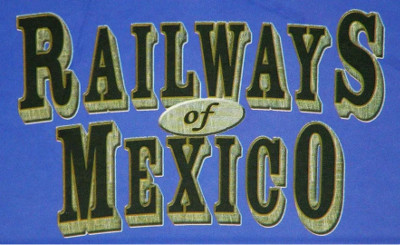
In Railways of Mexico, a strategy board game for 2 to 4 players, participants build an intricate rail network in mid-19th century Mexico. With an estimated playtime of around 90 minutes, this game is recommended for ages 12 and up.
Players engage in laying tracks, connecting cities, and managing resources while navigating the competitive landscape of rail construction. The game features a Mexico-themed gameboard, Railroad Baron and Railroad Operation cards specific to the Mexico map, gameplay rules, a scoreboard for tracking progress, and expansion options for fans of Railways of the World.
Mechanics emphasize resource management and strategic planning. Players must make important decisions about borrowing funds to finance their operations, choosing optimal routes for track placement, and upgrading their trains for efficiency. The interplay of player actions creates a dynamic environment where every decision can impact the outcome, ensuring a unique experience with each session. Will you outmaneuver your opponents and build the most profitable rail empire in Mexico? The adventure awaits!
